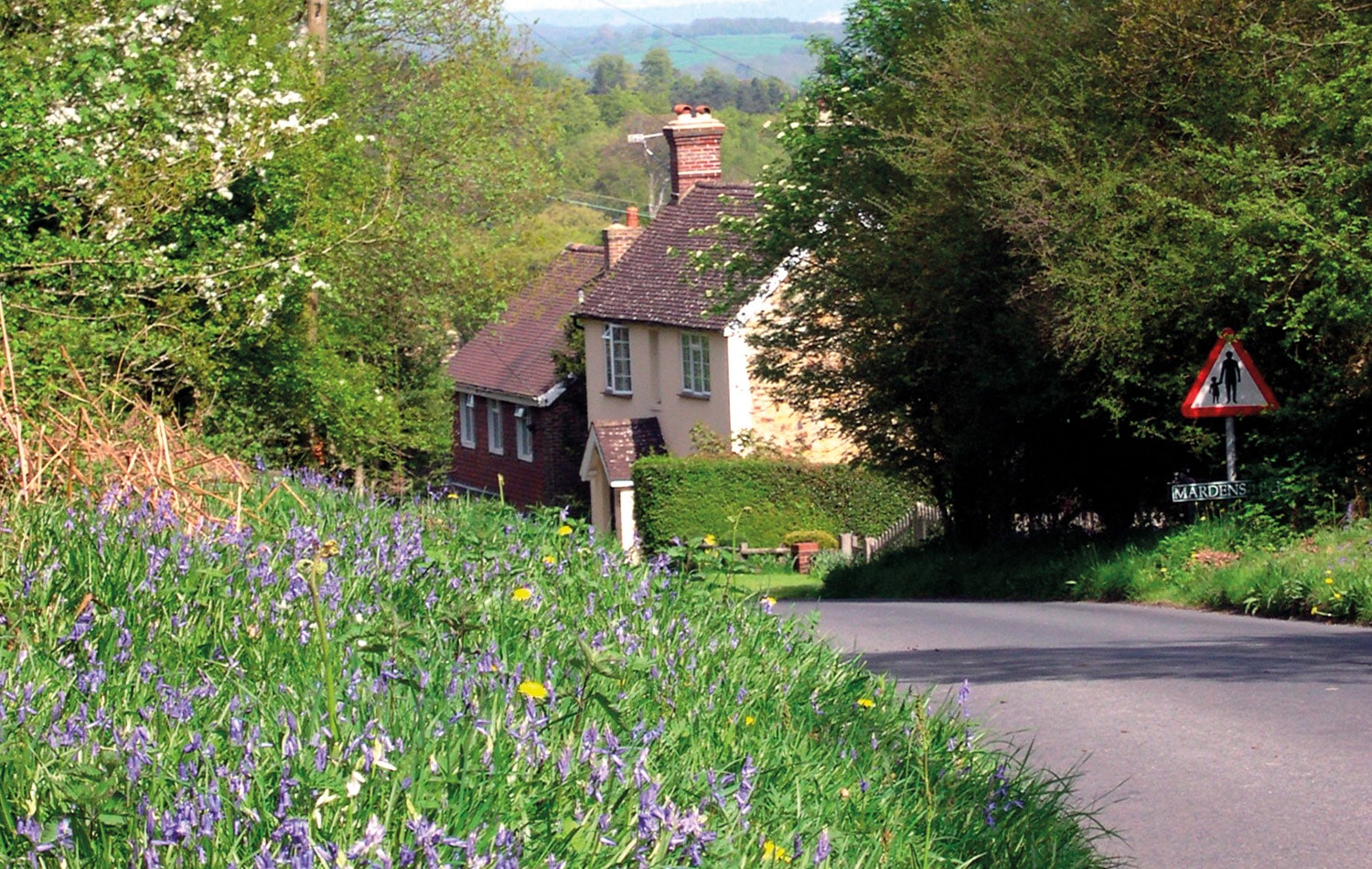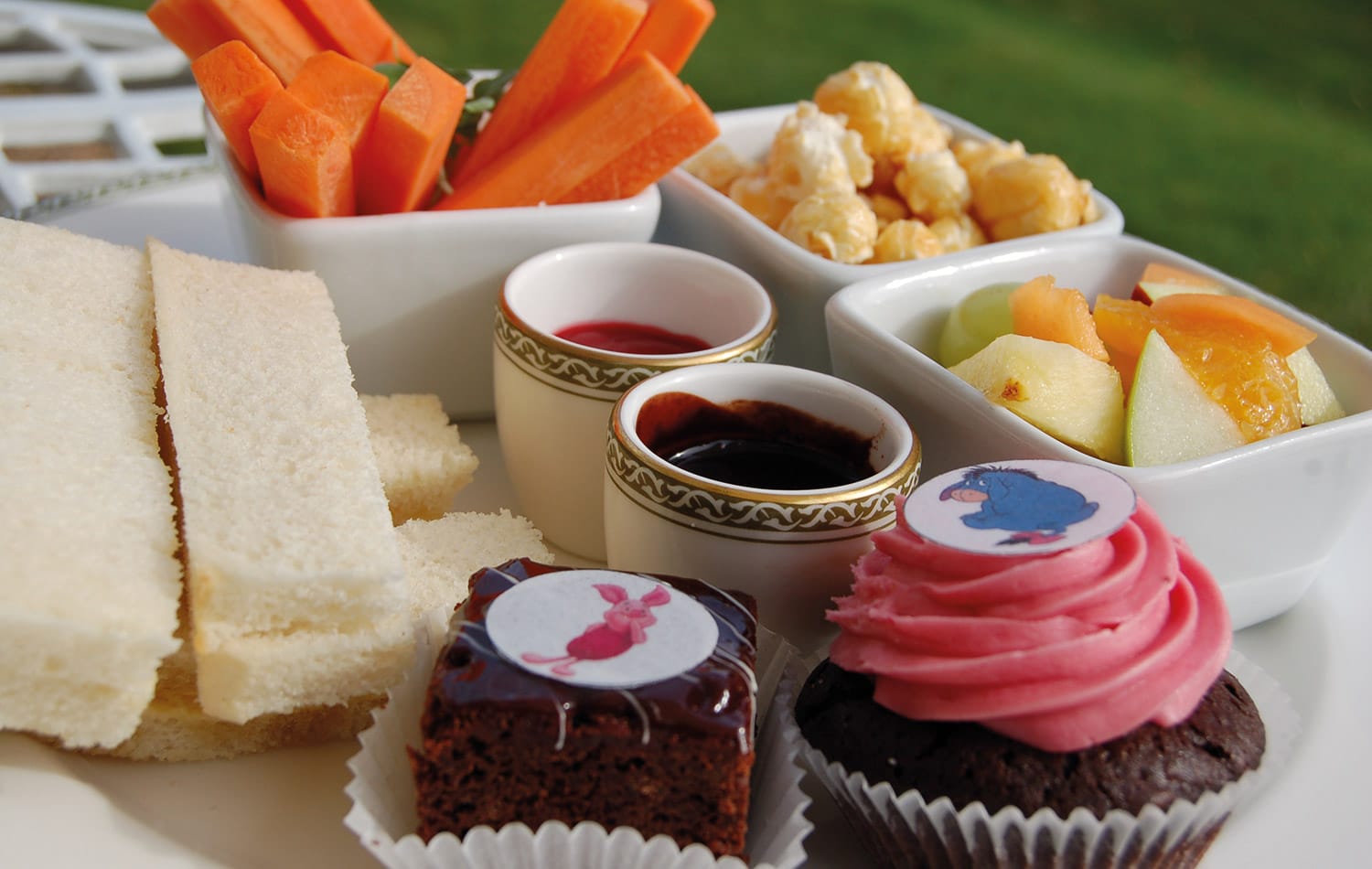If you go down to the woods today, you might meet a cuddly character.

I was raised on A.A. Milne, the acclaimed English author who wrote the classic stories about the adventures of much-loved bear Winnie-the-Pooh, touching many hearts across multiple generations all over the world. Before I was old enough to read, I knew all about the adventures of Piglet, Heffalump and Pooh. My imagination often wandered from my suburban home into the Hundred Acre Wood, a place where my paws were often dripping with honey.
With the recent film release of Goodbye Christopher Robin about the life of A.A. Milne, as well as Disney’s forthcoming movie Christopher Robin, starring Ewan McGregor, I had the perfect excuse to discover the settings from my imaginary childhood haunts. I booked a weekend with my far-too-cool-for-furry-animals teenager, Savanna, at Ashdown Park Hotel & Country Club in East Sussex, England, which is probably the closest place to Pooh’s fictional home. Only 10 minutes’ drive away is Ashdown Forest, the English oak and pine woods from which Milne drew the inspiration for Christopher Robin and his friends.

It’s not difficult to tread in Tigger’s footsteps. Ashdown Forest has parking lots with names like “Piglet’s” and signposts to Heffalump Trap, Galleons Lap and the North Pole. We headed for Pooh Sticks Bridge. I was determined to play my favorite childhood game with Savanna, even though she made it clear she’d prefer to be splashing in the hotel pool. She may have heard of Pooh, but she’d never heard of Pooh sticks. “You throw a little twig in the river from the bridge, then rush to the other side of the bridge to see whose stick comes out first,” I explained. Savanna looked at me, saying nothing. She wished she’d brought her iPhone and earphones.
We trudged along the well-trodden forest trail, stamped flat by toddlers’ feet. We were on a pilgrimage through the twisted beech and oak trees alongside other families who were pushing baby carriages. I made Savanna collect short, straight sticks along the path. She was more interested in pointing out that there was plenty of real poo, left by the horses that shared the bridleway.
The bridge itself was just like the one in the E.H. Shepard pencil drawing — underwhelming, small and made entirely of wood. I was ridiculously excited. I’d imagined this bridge so many times, and here it was. I could tell Savanna was curious how her mother, usually such a sensible woman, could get so emotional about such a minor site. I’d taken her to awe-inspiring places all over the world, and this certainly wasn’t one of them.
Savanna, a stickler for rules, read out the instructions for playing Pooh sticks that we’d been given by the hotel. Ready, steady, go! We threw our sticks into the mud-brown stream. Not far downstream, hundreds of small sticks thrown by small hands from the small bridge had created a dam. Savanna and I, completely enraptured by the simple game, ran out of sticks and had to scramble for some more in the mud. “Look! There’s mine! I’m winning!” we cried. We were both rather happy.

Back at Ashdown Park, an old convent that has been converted into a classic English countryside hotel, we had Winnie-the-Pooh tea with Rabbit’s carrot sticks, “hunny” sandwiches and Kanga’s cupcakes. At first, Savanna sniffed — she was far too old to eat a cake with a picture of a little bear on it. Then she surreptitiously popped the cake into her mouth and crunched on a carrot stick. That’s what Winnie the Pooh can do: make everyone enjoy being a child.
The Lowdown
Getting Here: You need a car and a good map to reach Ashdown Forest, which is a two-hour drive south of London. Despite being a place of pilgrimage, Ashdown Forest is poorly signposted and not easy to find. There is also a ban on any interpretation panels in the forest, so bring your own copy of the classic if you want to reminisce.
Where to Stay: Ashdown Park Hotel
Where to Eat: Pubs and restaurants are scarce because of planning restrictions in the park. After the hotel, one of the nearest places to eat is Pooh Corner tea shop in nearby Hartfield.
By Dea Birkett

